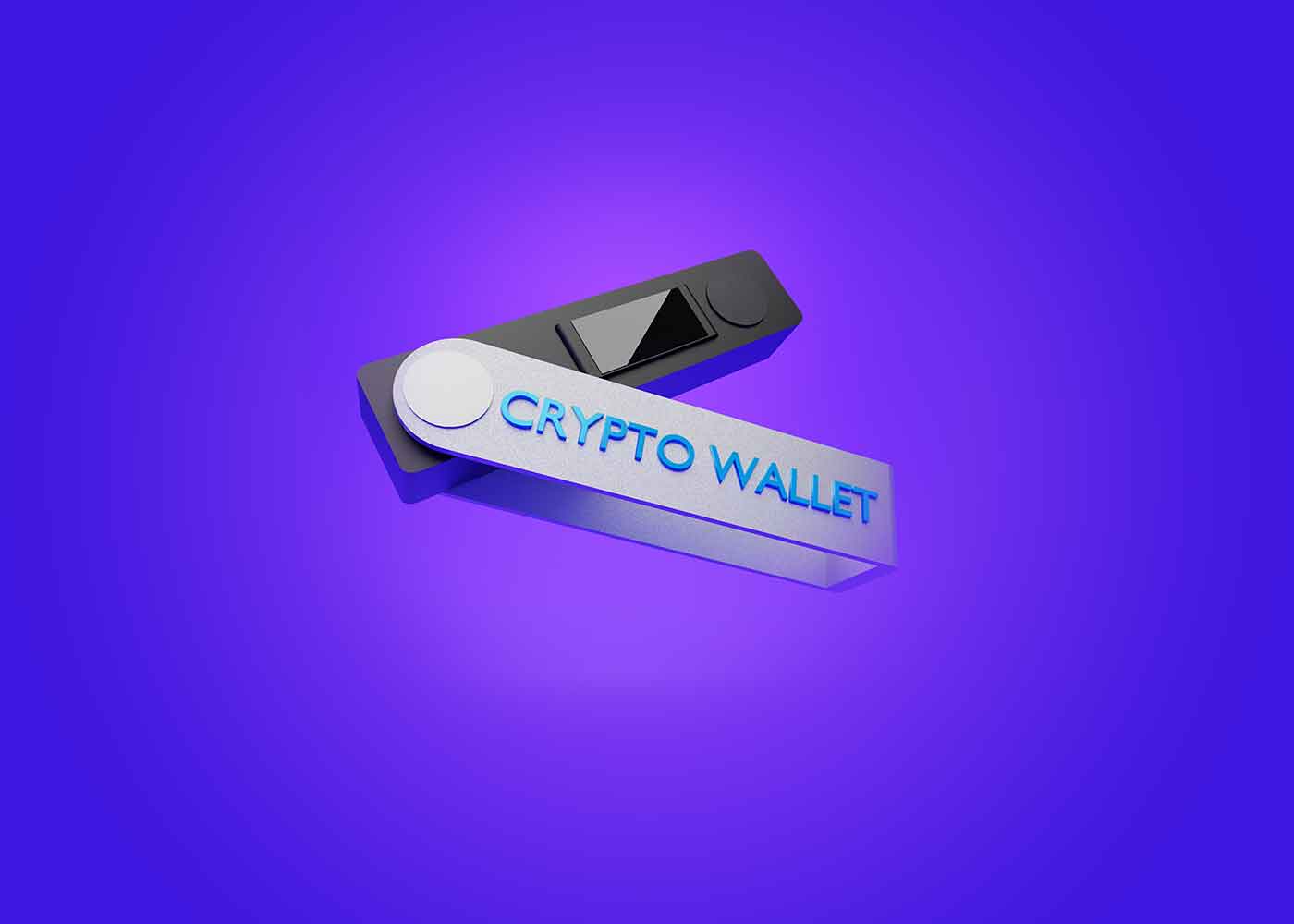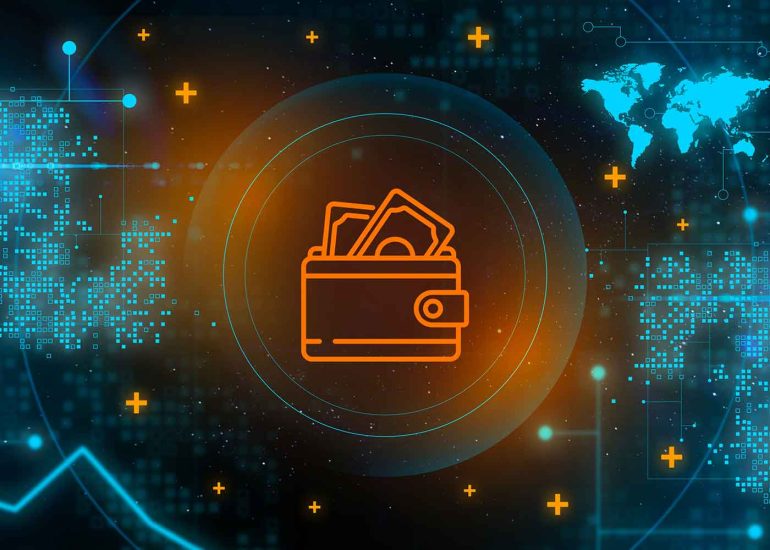The necessity for safe places to keep cryptocurrencies has grown steadily with the market in recent years. Users who are concerned about their cryptocurrency being stolen or compromised now have a viable solution in the form of decentralized cryptocurrency wallets. Users of decentralized wallets, in contrast to those of centralized wallets, are in full control of their own digital assets at all times. In this article, we’ll discuss why decentralized cryptocurrency wallets are gaining in popularity and what they have to offer.
The Basics: What Are Cryptocurrency Wallets?
A cryptocurrency wallet is a piece of software that allows its user to safely keep, manage, and send their cryptocurrencies. The blockchain is a distributed ledger that keeps track of all cryptocurrency transactions on the network, and cryptocurrency wallets are built to communicate with the blockchain. To transact in digital currency, users need a wallet, which creates a pair of public and private keys. The private key is kept secret and is used to sign transactions, while the public key acts as the wallet’s address, which can be shared with others to receive payments. Each sort of cryptocurrency wallet, such as hardware wallets, software wallets, and paper wallets, has its own set of pros and cons. Picking a reliable and secure wallet for your needs is a top priority.

Differences Between Decentralized Wallets and Centralized Ones:
Bitcoin and other cryptocurrencies can be stored in two distinct types of wallets: centralized and decentralized.
Exchanges and service providers are examples of centralized wallets that act as custodians. The custodian acts as the user’s trusted third party and stores the user’s private wallet keys. Users must trust the custodian’s security procedures to keep their money safe, as the custodian has full authority over the users’ assets. Centralized wallets are convenient because they simplify everyday financial transactions, including buying, selling, and borrowing. They are more susceptible to hacking, theft, or fraud since they constitute a single point of failure.
On the other hand, users have full authority over their digital possessions in a decentralized wallet because it is under their direct control. Users keep control of their private keys and their funds in a decentralized wallet; no third party has access to these wallets.
The benefits of using a decentralized wallet are numerous compared to centralized wallets.
- Security: The private keys used to sign transactions and move funds are stored exclusively by the user, making decentralized wallets more secure. There is much less of an opportunity for hacking, theft, or fraud when there isn’t a third-party custodian engaged.
- Privacy: Since users of decentralized wallets can generate unique addresses for each transaction, it is more difficult to trace a user’s transaction history or attribute an address to a specific person.
- Ownership: Users of a decentralized wallet are the sole proprietors of their digital assets and have the freedom to do whatever they like with them. Users are not bound by the policies of a single custodian that can limit their capacity to make withdrawals or access their funds.
- Interoperability: The capacity to communicate with various DeFi (decentralized finance) protocols, DEXs (decentralized exchanges), and other blockchain-based services is made possible by the interoperability of decentralized wallets.
- Open-Source: Many distributed wallets are available as open-source software so that their security can be independently verified by anyone. Users can have faith that the wallet is safe because no harmful code can hide from them.
How to Choose a Decentralized Wallet:
There are a wide variety of decentralized wallets to choose from, each with its own set of advantages and drawbacks. Choosing a decentralized wallet? Think about these things first.
- Security: When selecting a decentralized wallet, security must be your top priority. Try to find a wallet that supports two-factor authentication, multi-signature support, and encryption, as these are the norm in the market. Think about how many people are using the wallet and if there have been any security breaches in the past.
- Compatibility: Verify that the blockchain network your desired coins use is supported by the decentralized wallet. Make sure the wallet you select is compatible with the cryptocurrencies and networks you intend to use.
- User Experience: The wallet’s user interface is another crucial aspect to think about while making your final decision. Find a wallet that fits your needs and has a simple, straightforward interface. Think about things like processing time, fees, and availability of help.
- Community Support: Look for a decentralized wallet that is well-supported by its users and development communities. Tutorials, how-to instructions, and updates are just some of the resources that may flourish from an active community.
- Open-Source: Choose a decentralized wallet that is open-source if you value transparency and the ability to have your wallet audited by anyone. As a result, anyone can check for security flaws or harmful code in the wallet’s code, as it has been made available to the public.
In conclusion, it’s important to put factors like safety, compatibility, user-friendliness, community support, and open-source development at the forefront when selecting a decentralized wallet. You may select a decentralized wallet that delivers the safety and features you require to manage your digital assets by thinking about the aforementioned elements.
Examples of Decentralized Crypto Wallets:
Several independent cryptocurrency wallets are currently accessible to the public. Some examples are as follows:
- MetaMask is a widely used Ethereum wallet that provides browser-based access to dApps and the Ethereum blockchain for the storage, management, and interaction of Ethereum-based assets. Users have full control over their funds in a MetaMask wallet because it is not a custodial wallet.
- MyEtherWallet (MEW) is a client-side, open-source Ethereum wallet that is free to use and allows you to store and manage your Ether and other ERC-20 tokens. MEW is a decentralized wallet for the Ethereum network that allows users to keep control of their private keys.
- Trust Wallet is a cryptocurrency mobile wallet that enables users to safely store, manage, and transact their digital assets on the go. Users of Trust Wallet, as it is a non-custodial wallet, have full control over their private keys and cryptocurrency holdings at all times.
- Ledger Nano S is a hardware wallet for storing and managing cryptocurrency offline, away from hackers and thieves. Ledger Nano S users can store and use their private keys for a variety of cryptocurrencies.
- Trezor is yet another cryptocurrency hardware wallet that offers users the ability to store and manage their cryptocurrency holdings in an offline environment. Trezor allows users to keep their private keys and is compatible with many different cryptocurrencies.
These are but a few of the many distributed cryptocurrency wallets now on the market. Wallets come in a wide variety of shapes and sizes, so it’s important to do your homework before settling on one to store your digital money.
Conclusion:
In conclusion, decentralized crypto wallets provide an improved level of safety, anonymity, and oversight for your digital assets. Users with decentralized wallets have full access and control over their cryptocurrency holdings, making them more secure against theft, fraud, and hacking. Decentralized wallets also provide interoperability with other blockchain applications, allowing users to engage with various DeFi protocols, decentralized exchanges, and other blockchain-based services in a streamlined fashion. Security, compatibility, user experience, community support, and open-source development are all important factors to consider when selecting a decentralized wallet. By thinking about these things, users may pick a decentralized wallet that works for them and offers the safety and features they require to keep their digital assets secure and accessible. If you want to keep up with the ever-expanding realm of cryptocurrencies and blockchain-based applications, a decentralized crypto wallet is a must-have.
You may be interested in:
Exploring Investment Vehicles: Understanding the Different Types
LV Life Insurance Reviewed: Pros, Cons, and Key Features [2023]



